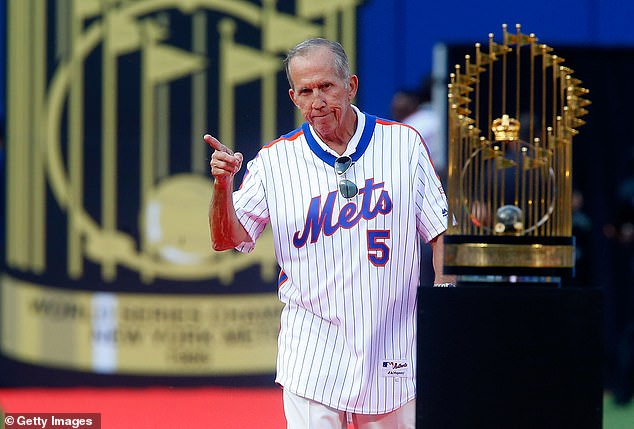The baseball world is mourning the loss of Davey Johnson, the iconic figure who guided the New York Mets to their last World Series victory.
He passed away at the age of 82, leaving behind a legacy that stretched far beyond one franchise.
A Career That Spanned Generations
Before he ever became a manager, Johnson was already a decorated player.
As a second baseman for the Baltimore Orioles, he won two World Series titles and earned three Gold Gloves.
He even played a role in one of baseball’s great storylines — making the final out of the 1969 Series, which handed the underdog Mets their very first championship.
Seventeen years later, the script flipped, and Johnson was the one leading the Mets to their second World Series crown in 1986.
The News That Shook Fans
The Mets’ cable network SNY confirmed his passing on Saturday morning, though the cause of death wasn’t shared.
Coincidentally, two of Johnson’s former teams — the Mets and the Cincinnati Reds — were scheduled to meet that evening in Cincinnati, adding an emotional layer to the news.
Fans, players, and colleagues quickly filled social media with tributes.
Longtime Mets announcer Howie Rose wrote that he learned more about baseball’s inner workings from Johnson than anyone else.
“RIP, old friend,” Rose shared, promising to reflect further on their relationship later.
Remembering the Perfect Manager
For Mets fans, Johnson wasn’t just a name on a lineup card — he was the man who gave their team swagger.
Many recalled his interviews during the unforgettable 1986 run, praising how perfectly he fit that ballclub.
Reds and Orioles fans chimed in too, remembering him as the manager who gave their teams playoff success in different eras.
Even John Thorn, Major League Baseball’s official historian, offered a simple yet powerful farewell: “Hail and farewell, Davey Johnson.”
From Florida to the Major Leagues
Born in Florida in 1943, Johnson took an unusual path to stardom.
After studying at Trinity University and spending a brief time at Texas A&M, he signed with the Orioles in 1962.
Just three years later, he broke into the majors as Baltimore began its golden era.
By the early 1970s, Johnson had played in four World Series with the Orioles, winning in 1966 and 1970.
He later added stints with the Braves, Phillies, and even Japan’s Yomiuri Giants before retiring as a player in 1978.
A New Era in New York
In 1984, Johnson stepped into managing with the Mets, taking over a young but promising team built around Dwight “Doc” Gooden and Darryl Strawberry.
His leadership and use of analytics — at a time when “sabermetrics” was still new — set him apart.
The defining moment came in 1986, when the Mets pulled off their dramatic comeback against the Boston Red Sox, capped by Bill Buckner’s infamous error in Game 6.
The Mets sealed the deal in Game 7, and Johnson was forever etched into team history.
Challenges and Controversy
As magical as the Mets years were, they didn’t last.
By 1990, internal conflicts led to Johnson’s firing despite his success.
He later revived the Cincinnati Reds, taking them as far as the 1995 NLCS, only to be let go by owner Marge Schott under controversial circumstances.
Johnson’s managerial journey continued with stops in Baltimore, Los Angeles, and Washington.
He guided the Orioles to back-to-back playoff appearances in the mid-90s and eventually closed out his career with the Nationals, retiring in 2013 after leading them to the postseason once.
A Legacy That Lives On
Davey Johnson’s story is one of resilience, brilliance, and timeless influence.
From Gold Glove-winning player to forward-thinking manager, he left an undeniable mark on every team he touched.
His passing may leave fans heartbroken, but his legacy will forever live in the fabric of baseball history.
